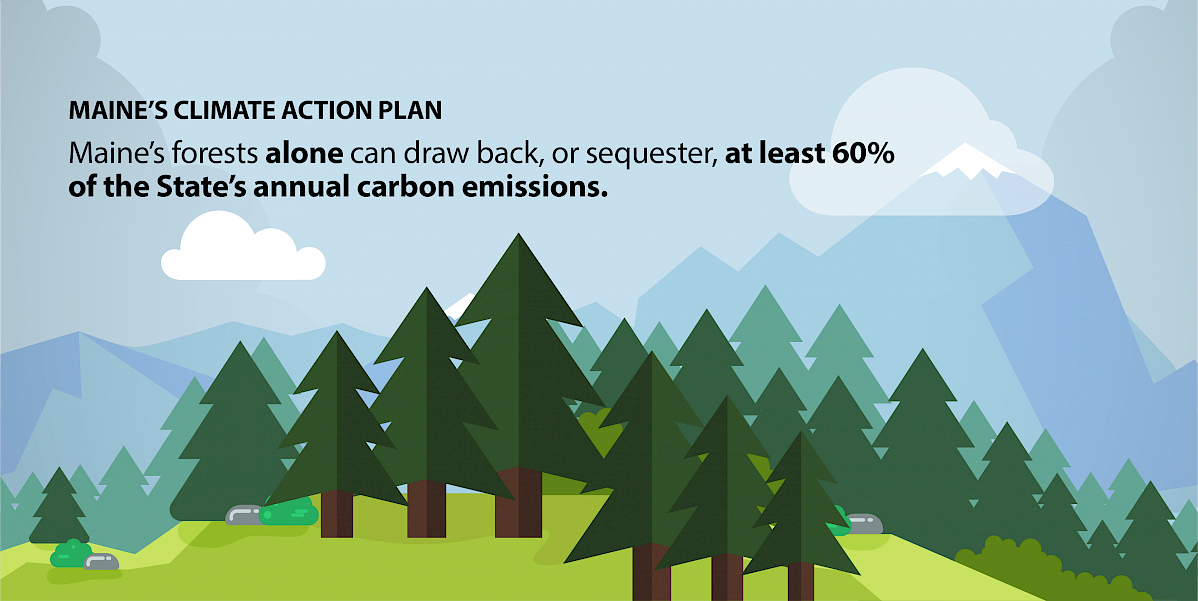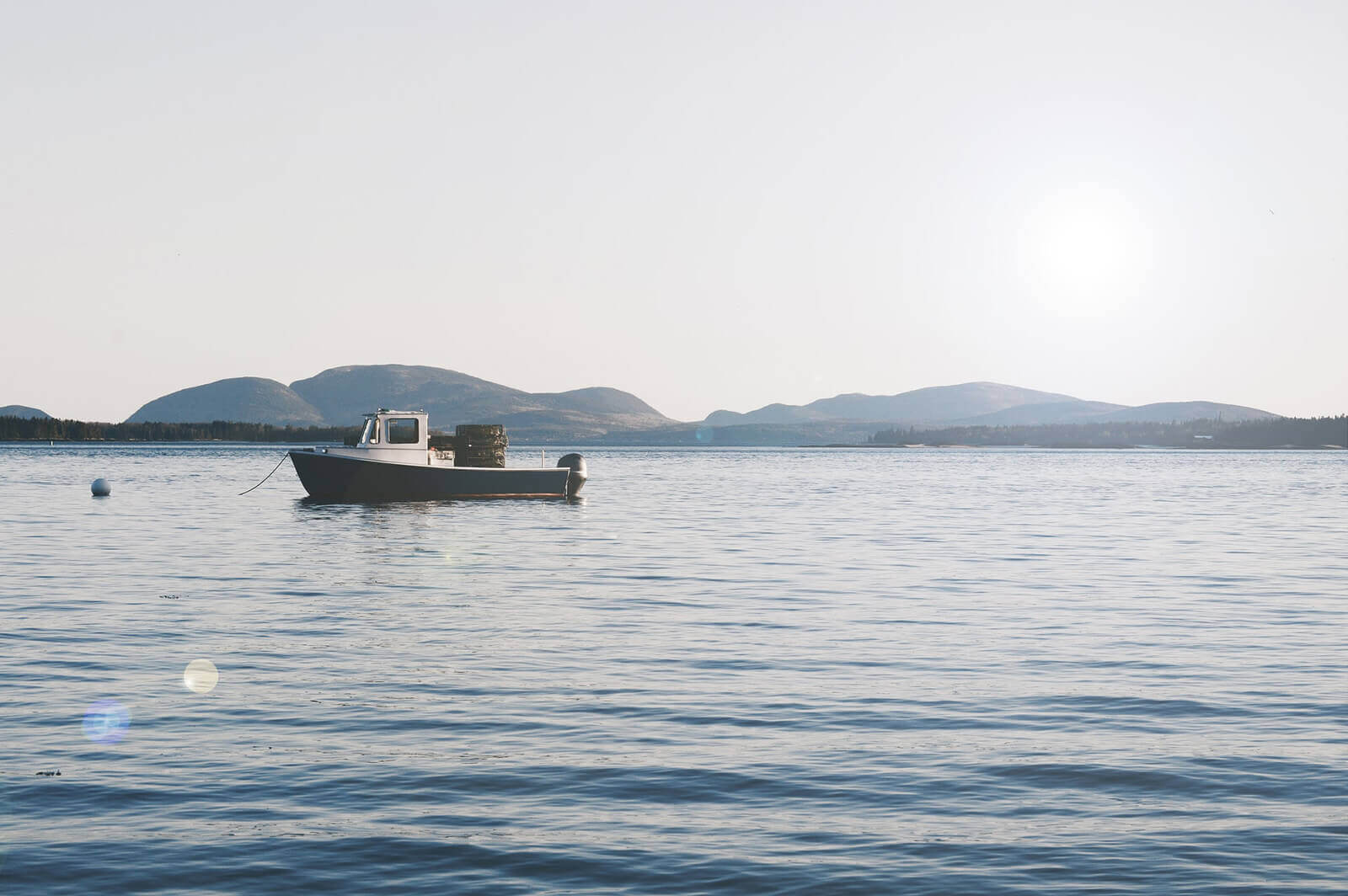Clean Environment
Access to clean air, clean water, and the economic and restorative benefits of our wild and natural places should be the right of every Mainer.
Carbon pollution from fossil fuels is disrupting our climate, threatening our survival, and compromising our health. Ending our dependence on fossil fuels is imperative for our health and our planet, and we can do so while growing our economy. Dangerous chemicals like PFAS are causing harm to our health and should be eliminated.
Clean energy
A forward-thinking energy system based on renewable, sustainable sources can support thousands of well paid jobs requiring a variety of skill sets while giving Maine families and businesses energy security and stability. We can do more to take charge of our energy production, lower energy costs, create good-paying jobs, and reduce the climate-changing carbon pollution that is threatening our way of life.

Warmer temperatures and erratic weather patterns are putting the livelihoods of Maine farmers and fishermen at risk while increased pollen, higher ozone levels, and extreme heat are making our air less healthy to breathe. We know that climate change disproportionately impacts low income communities and people of color. For example, asthma rates in Maine, for adults and children, are among the highest in the nation. Nationwide, asthma rates for Black people were 25% higher than for white people in 2018. Mitigating climate change impacts by reducing carbon pollution and transitioning to a clean energy economy that provides good paying jobs must be prioritized at every level of government.
Maine’s Climate Action Plan must include:
- Electric vehicle incentives, especially for school buses. EVs are healthier, have no diesel fumes and are less expensive long term because the maintenance costs are minimal. Accessible public transportation should be made more widely available, in both rural and urban parts of the state, and electrified wherever possible. A fund must be established to pay for fixing our roads and bridges, to provide for electric vehicle infrastructure and for leasing electric vehicles to low income families.
- Heat pumps. Maine is the most dependent on oil heat of any state in the country. High-efficiency electric heat pumps should replace costly, inefficient oil heat and oil, propane, or electric resistance water heaters, making bills easier to pay and the air easier to breathe. Efficiency Maine’s program to provide heat pumps to low income families should be expanded.
- Energy efficient buildings and houses. New buildings and houses should be built to a high energy efficiency standard and existing houses weatherized to reduce energy usage and carbon emissions, increase resident comfort, build home equity, save residents money, and offer opportunities to remediate mold, lead, and other health hazards. Ongoing programs administered by MaineHousing and the Efficiency Maine Trust should be expanded.
- Critical infrastructure. Maine communities, businesses, farms, fisheries, and critical infrastructure should be adequately protected from sea level rise, extreme weather, and other harmful impacts of climate change.
- Accessible clean energy. As new policies spur rapid expansion of clean energy across our state, we must ensure equitable access to clean energy options and economic opportunities and keep the benefits of this clean energy transition front and center. Universal access to broadband, community solar, and distributed clean energy systems will generate good jobs and result in energy that is more affordable, Maine generated, equitably available, reliable, and secure.
- Protecting Maine’s Lands and Waters. Maine’s natural and working lands and waters are crucial to our ability to sequester carbon, and unplanned, uncontrolled development threatens this crucial resource. As Maine’s climate action plan recognizes, Maine’s forests alone can draw back, or sequester, at least 60% of the State’s annual carbon emissions. Maine’s coastal and marine areas also store carbon, while its dunes, marshes, and wetlands provide natural protections from flooding and erosion that is on the rise due to climate change. These lands and waters also support farming, fishing, and outdoor recreation. The rising importance of the latter has been highlighted by the current pandemic, during which an unprecedented number of Mainers have sought the physical and mental health benefits of its beautiful wild areas. Responsible measures to protect Maine’s natural and working lands and waters are crucial to tackling climate change and to building an economy and environment that sustains all who live here. It is imperative that land and water rights of indigenous communities are upheld and enforced through meaningful action including the expansion of Tribal jurisdiction for hunting, fishing and environmental protections.
Environmental Justice
Identifying and cleaning up or closing down toxic chemical pollution is necessary as we strive for environmental justice.
Maine’s reputation for a healthy and uniquely beautiful environment must be preserved and expanded, so that all of Maine’s people have clean air, land and water, not just those who can afford to avoid the scars left by irresponsible manufacturing or extraction of natural resources.
For example, the Juniper Ridge Landfill in Old Town, due to a loophole in law, accepts out of state construction waste that contains toxic material. The landfill has been leaking leachate into the Penobscot River, which is the sacred river of the Penobscot people. It is also leaking onto Penobscot owned land. This landfill should be closed or at least cleaned up.
Far too many homes in Maine still contain lead paint and have wells that contain arsenic. Low income families cannot easily afford the cost of remediation. It is essential to invest public resources in removing these public health and environmental risks for all Mainers, recognizing that the cost of remediation should be borne wherever possible by those who gained from the activities causing the harm or risk of harm to others.
Likewise, access to the outdoors for recreation should not be limited to those with the means to own private tracts or to travel long distances: everyone should have access to the outdoors, and publicly accessible places must be numerous enough, and well enough staffed, to accommodate all those who seek to use them, regardless of income or ability to travel, and with consideration of the needs of Mainers with disabilities. This requires renewed investment in our system of parks and public lands. This can be accomplished through a combination of conserving additional lands through purchases as well as working forest and farm easements, and managing our public lands in a sustainable fashion, maximizing carbon sequestration while also providing public access and allowing indigenous and other traditional uses of land to thrive.
Environmental Justice cannot be attained unless the land and water rights of indigenous communities are upheld and enforced through meaningful action including the expansion of Tribal jurisdiction for hunting, fishing and environmental protections.
On June 26, 2019, the Governor and Legislature created the Maine Climate Council, an assembly of scientists, industry leaders, bipartisan local and state officials, and engaged citizens to develop a four-year plan to put Maine on a trajectory to reduce emissions by 45% by 2030 and at least 80% by 2050. By Executive Order of Gov. Mills, the state must also achieve carbon neutrality by 2045. In December of 2020 the Climate Council issued a Four-Year Plan for Climate Action to “protect the natural beauty of our state, to improve the lives of our families and the livelihoods of our people, and to ward off future natural disasters and economic crises.”
